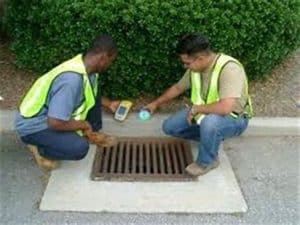1. Environmental Protection
- Pollution Prevention: Public works crews are often on the front lines—maintaining roads, cleaning streets, managing construction sites. If they understand how stormwater runoff can carry pollutants (like oil, trash, sediment, and chemicals) into local waterways, they can take action to reduce it.
- Water Quality: Proper training helps ensure actions taken on the job support clean rivers, lakes, and streams, in line with environmental regulations.
2. Regulatory Compliance

- Clean Water Act: Municipalities must follow federal and state stormwater regulations (like NPDES permits in the U.S.). Trained staff are essential for meeting these requirements and avoiding fines or enforcement.
- Documentation and Reporting: Employees often help monitor stormwater systems and need to know how to document activities correctly.
3. Flood Prevention and Infrastructure Protection
- System Maintenance: Knowing how stormwater systems work (e.g., drains, catch basins, detention ponds) helps employees maintain them properly, reducing the risk of flooding or infrastructure damage.
- Early Detection of Issues: Trained staff are more likely to spot clogged drains, erosion, or illicit discharges before they cause bigger problems.
4. Public Safety and Community Well-being
- Health Hazards: Stormwater can carry harmful bacteria and chemicals. Trained staff help reduce risks to the public.
- Community Trust: A well-informed public works team can confidently explain stormwater practices to residents and respond to concerns effectively.
5. Cost Savings
- Preventative Maintenance: Understanding stormwater systems allows for proactive maintenance, reducing expensive emergency repairs or environmental remediation.
- Efficient Use of Resources: Training helps teams work more efficiently and avoid costly mistakes.

